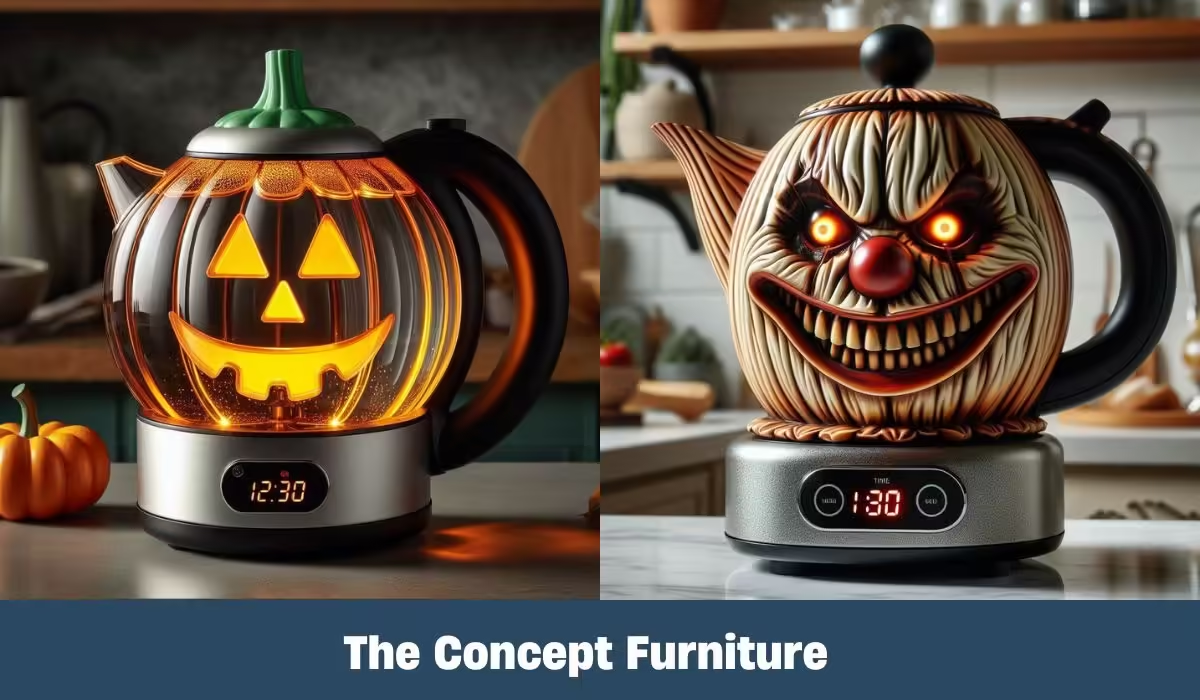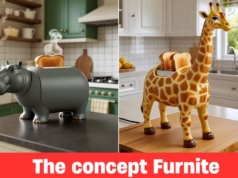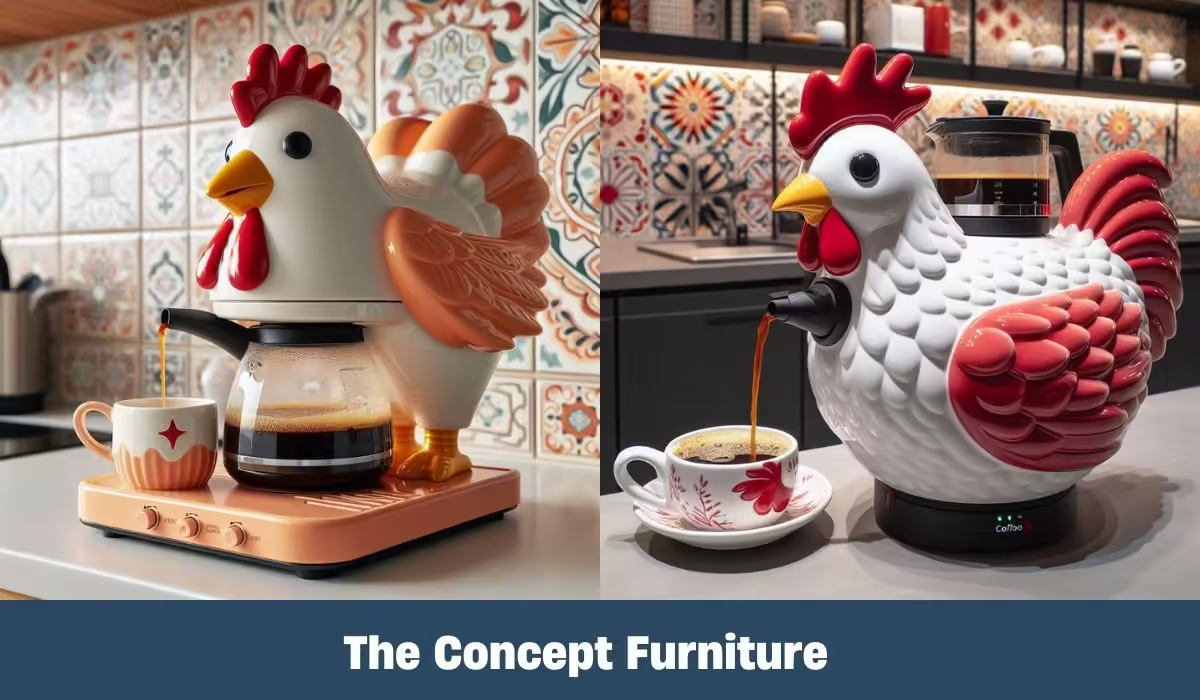The world of antiques is rife with tales of the mysterious and the supernatural, and few objects capture this imagination quite like spooky kettles. These seemingly innocuous teapots hold a unique allure, with stories bound to their ceramic bodies that weave together threads of legend, fear, and fascination. From folklore that has transcended generations to reports of eerie encounters in dimly lit kitchens, the phenomenon surrounding haunted kettles invites exploration into our collective psyche regarding the unknown. In this article, we delve into the enigmatic world of spooky kettles, examining their origins, cultural significance, and the psychological impact they have on those who believe, or perhaps want to believe, in their haunting presence.
Introduction to Spooky Kettles
The notion of an inanimate object possessing a spirit or energy has been prevalent in various cultures around the world. Spooky kettles, specifically, evoke a peculiar combination of warmth associated with tea time and the chill of ghostly tales. The charm lies not only in their physical form but the narratives that surround them.
While many may regard Spooky Kettles as mere kitchenware, these items have often been imbued with meaning and mystique through storytelling. This introduction sets the stage for understanding why certain kettles have earned a reputation as “haunted,” leading us deeper into their history and cultural implications.
The Fascination with Haunted Objects
Haunted objects, be they dolls, mirrors, or in this case, Spooky Kettles, have captured human intrigue for centuries. This fascination stems from several factors, including our innate curiosity about the afterlife, the desire to connect with the past, and the thrill of experiencing something beyond the ordinary.
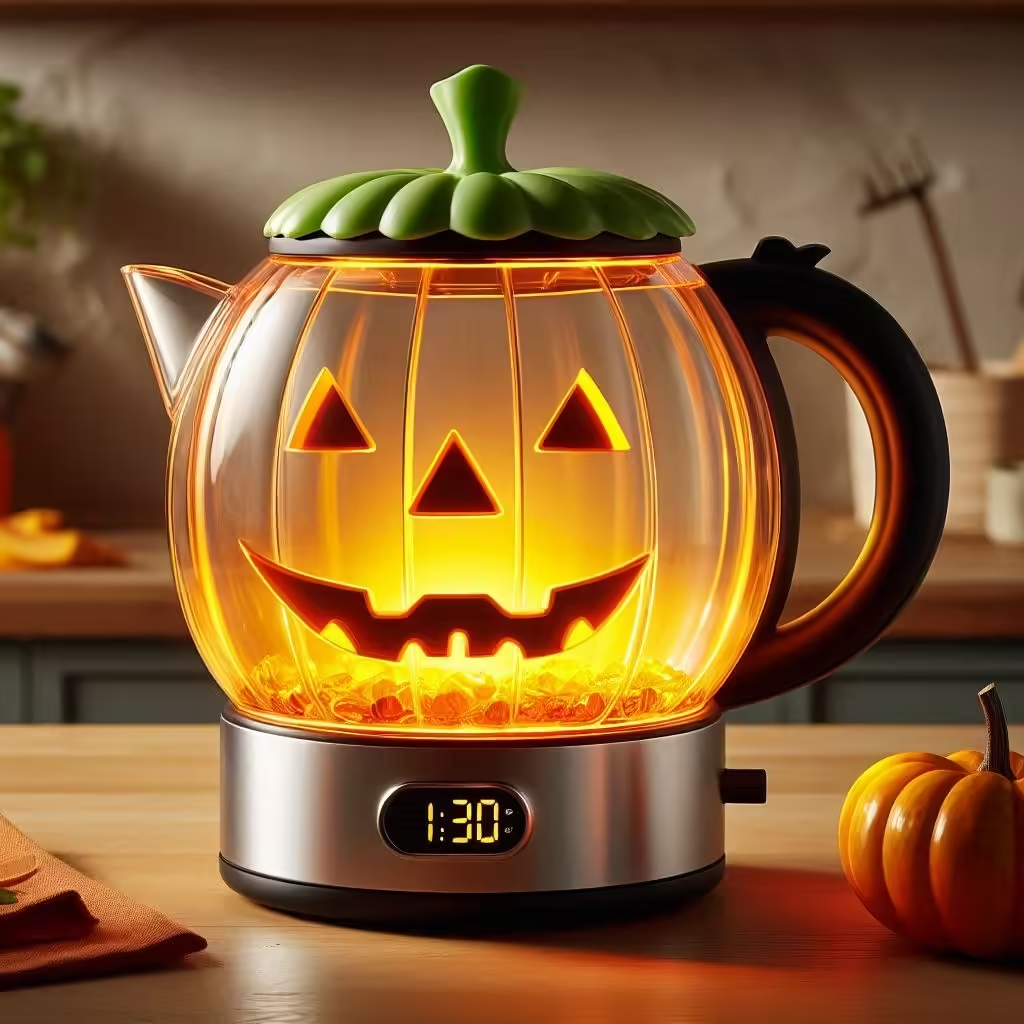
The appeal of spooky kettles lies primarily in how they bridge the gap between the mundane and the mystical. A kettle, often seen as an everyday item, becomes a vessel of lore, transporting us into realms of possibility where the past and present intertwine. The stories tied to these kettles often invoke emotions ranging from nostalgia to dread, striking a chord within the collective consciousness.
Historical Context of Kettles in Folklore
Spooky Kettles have been featured in numerous folk tales, often symbolizing domesticity or warmth. However, they also serve as vessels for darker narratives involving witchcraft and the supernatural. Historical records indicate that during periods of societal upheaval, such as the witch hunts of the Middle Ages, common household items were scrutinized for signs of malevolent intent.
This historical context suggests that Spooky Kettles, due to their association with brewing potions or concocting remedies, became linked to the witch trials and folklore surrounding witches. Consequently, the transition from a simple cooking tool to a spooky kettle serves as a reflection of societal fears and beliefs, demonstrating how objects can embody complex stories over time.
The Origins of Spooky Kettles
Understanding the origins of spooky kettles requires delving into the early designs and cultural contexts from which they emerged. As we explore these elements, we uncover the layers of meaning encapsulated within each kettle, revealing how they have evolved into symbols of intrigue and fright.
Early Designs and Their Symbolism
Early Spooky Kettles were crafted from various materials, including clay, metal, and glass, each conveying different meanings. For instance, clay kettles typically symbolize earthiness and groundedness, while metal kettles may evoke feelings of industrial progress or modernity.
As artisans began to incorporate intricate designs and motifs, these kettles became more than functional items; they transformed into canvases for expression. Some featured symbolic engravings representing protection against evil spirits, while others depicted scenes from folklore, thereby connecting the kettle to stories of the supernatural, further solidifying their status as spooky kettles.
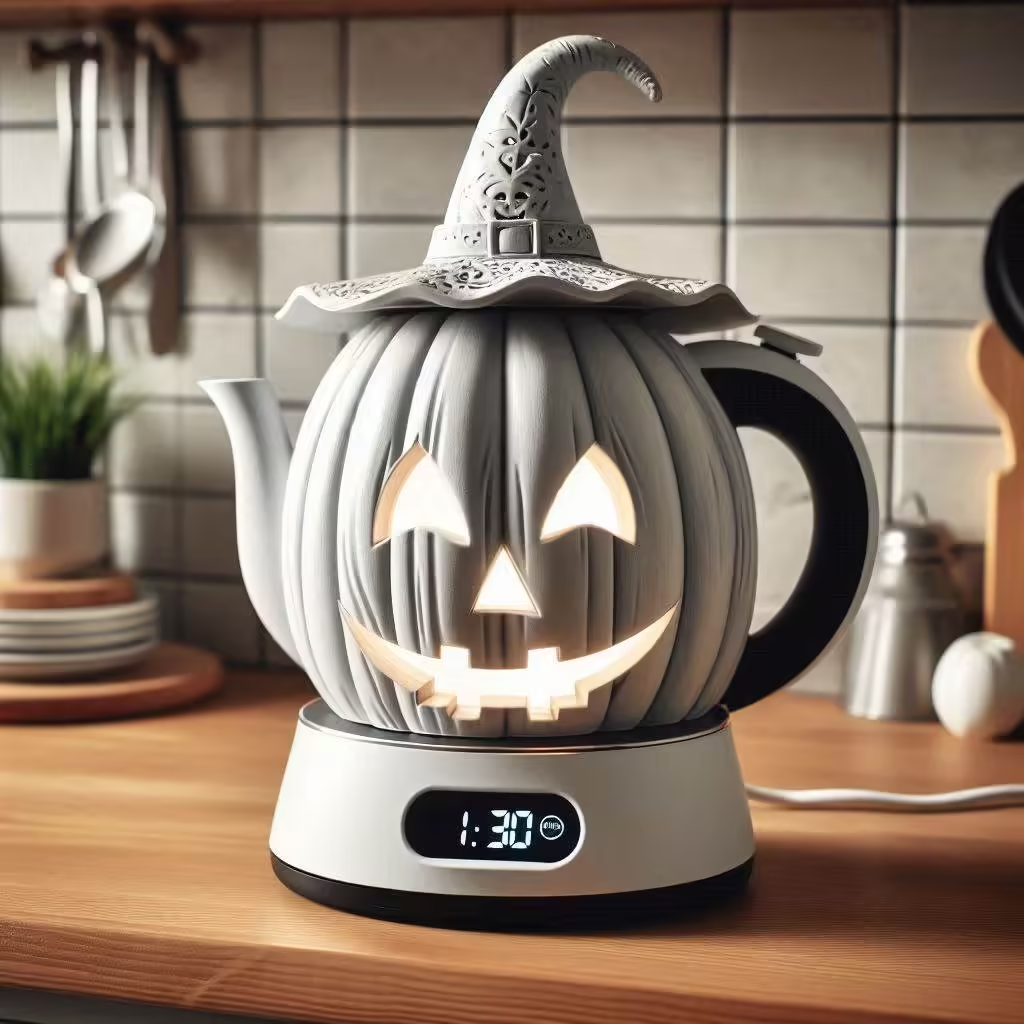
Cultural Significance Across Different Regions
Across different cultures, Spooky Kettles have taken on varied roles, from sacred vessels to tools for communal rituals. In some African traditions, for example, kettles are used in ceremonial practices to signify hospitality and the nurturing spirit. Conversely, in European folklore, they often appear in tales involving witches, where brews brewed in kettles were thought to possess magical properties.
Understanding these cultural nuances provides insight into how Spooky Kettlestranscend their functional purpose, becoming intertwined with rituals and beliefs that shape societies’ relationships with the supernatural. Each culture’s interpretation contributes to the rich tapestry of spooky kettle narratives, reflecting local fears and joys.
Famous Haunted Kettles Throughout History
Some specific kettles have gained notoriety for their supposed supernatural qualities, cementing their places in folklore and history. These tales invite us to consider not just the objects themselves, but also the stories that elevate them into the realm of the uncanny.
The Kettle of the Witching Woods
One of the most famous tales involves a kettle said to reside in an ancient forest known as the Witching Woods. This Spooky Kettles, believed to belong to a coven of witches, was rumored to bubble continuously, regardless of whether it was on a fire. Local legends suggest that anyone who approached the kettle might hear whispers or be wrapped in an unnatural fog, hinting at residual magic that refuses to dissipate.
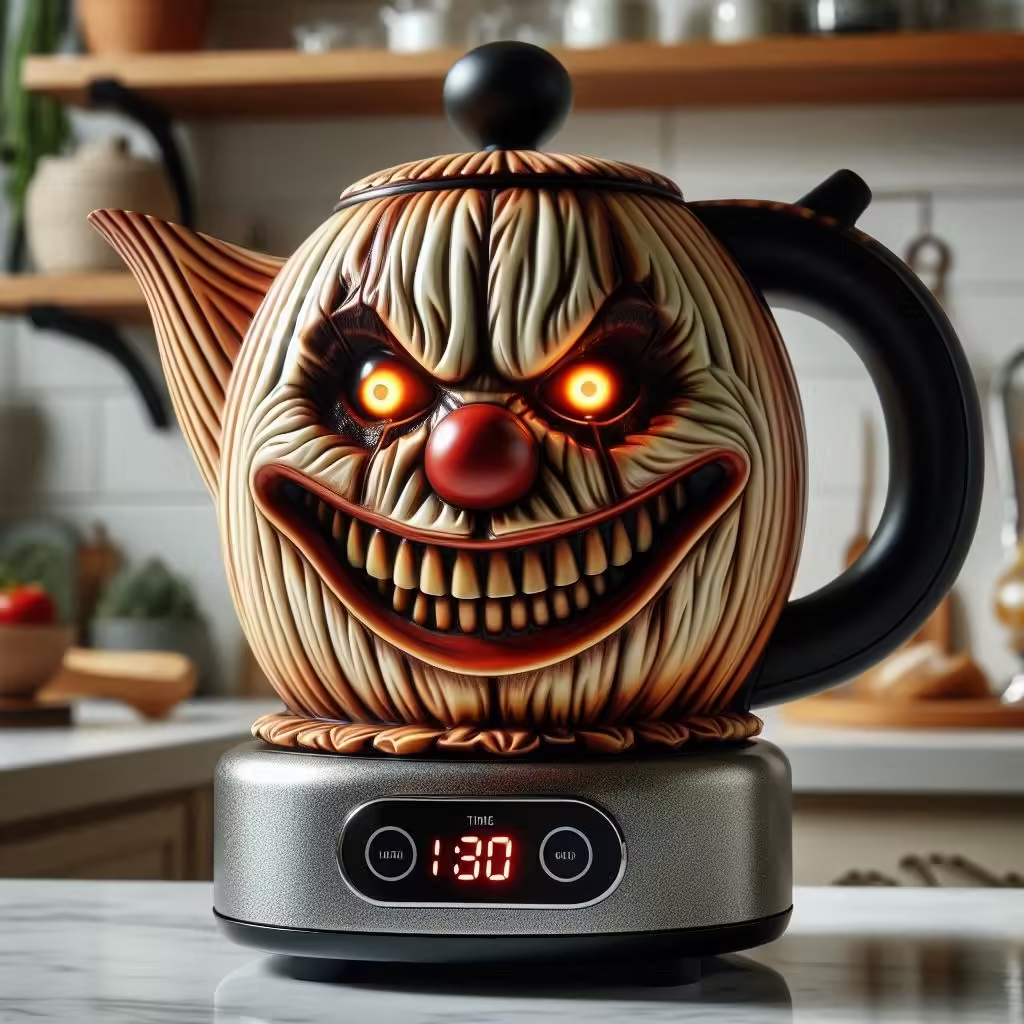
People venturing into the woods have reported strange sensations and feelings of being watched, attributing these experiences to the spirits connected to the kettle. The story encapsulates the essence of spooky kettles: a blend of mystery, nature, and the supernatural, each contributing to its chilling allure.
The Teapot that Belonged to a Notorious Figure
Another Spooky Kettles steeped in lore is the infamous “Teapot of Blackwood Manor.” This kettle is said to have belonged to a notorious figure in Victorian England, a woman rumored to dabble in occult practices. After her untimely demise under suspicious circumstances, the kettle was passed down through generations.
Those who have encountered the Spooky Kettles report unexplainable occurrences – the sound of boiling water when no fire was lit, or the appearance of shadowy figures near where it was displayed. The teapot stands as a testament to how personal stories can amplify the eeriness associated with a humble object, transforming it into a spooky kettle that captivates all who hear of it.
The Science Behind the Supernatural
While tales of spooky kettles lean heavily on folklore, psychology and science offer insights into our perceptions of the supernatural. Understanding these psychological aspects can demystify the allure of haunted objects, revealing deeper truths about human behavior and belief systems.
Psychological Reasons for Believing in Haunted Objects
Belief in haunted objects often stems from our intrinsic need for connection and understanding. Objects that carry emotional weight—especially those with historical significance—become repositories for our memories and desires. When infused with stories of the supernatural, these objects resonate even more deeply, leading individuals to attribute lifelike qualities to them.
Moreover, cognitive biases, such as pareidolia—the tendency to perceive familiar patterns where none exist—play a crucial role in how we interpret unusual phenomena surrounding these Spooky Kettles. When a kettle emits an odd noise, it elicits a sense of foreboding due to preconceived notions of hauntings, triggering a cycle of belief and experience that reinforces the kettle’s spooky reputation.
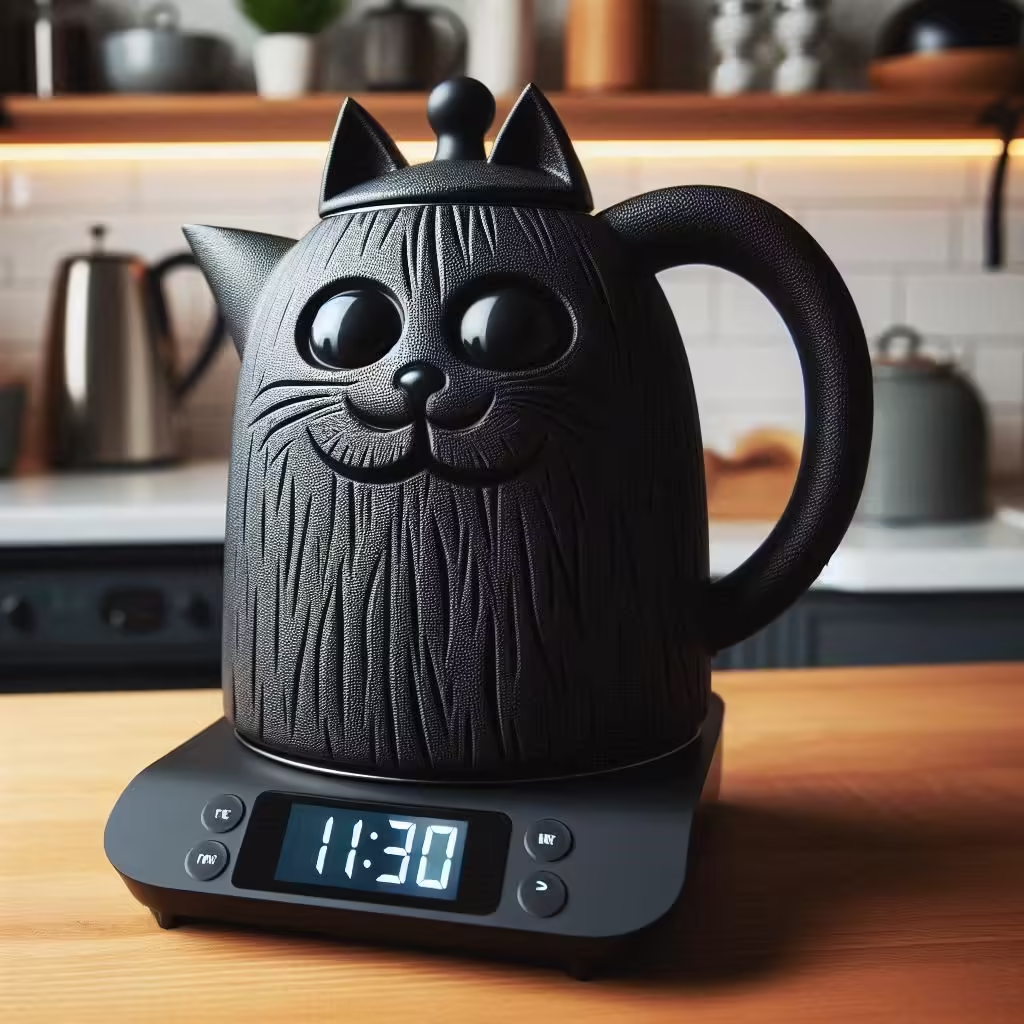
Paranormal Investigations and Their Findings
Paranormal investigations often seek to validate claims of haunted objects through scientific methods. Ghost hunters use various techniques, such as electronic voice phenomena (EVP) recordings, thermal imaging, and electromagnetic field measurements, hoping to capture evidence of spirits.
In the case of spooky kettles, investigators have claimed to document anomalous readings around certain objects. While skeptics argue these findings are the result of environmental factors or equipment malfunction, believers see them as affirmations of the kettle’s haunted status. This intersection of science and the supernatural raises questions about the nature of reality and our interpretations of the unseen world.
Common Traits of Spooky Kettles
Certain traits commonly emerge among spooky kettles, lending to their distinctive appeal. Recognizing these features can deepen our understanding of why particular kettles become emblematic of hauntings and legends.
Distinctive Features of Haunted Teapots
Many spooky kettles share physical characteristics that contribute to their eerie allure. Often, they feature elaborate designs or unusual shapes that distinguish them from standard kettles. Their aged appearance, combined with cracks, stains, or unusual wear, adds a layer of authenticity to the tale of being haunted.
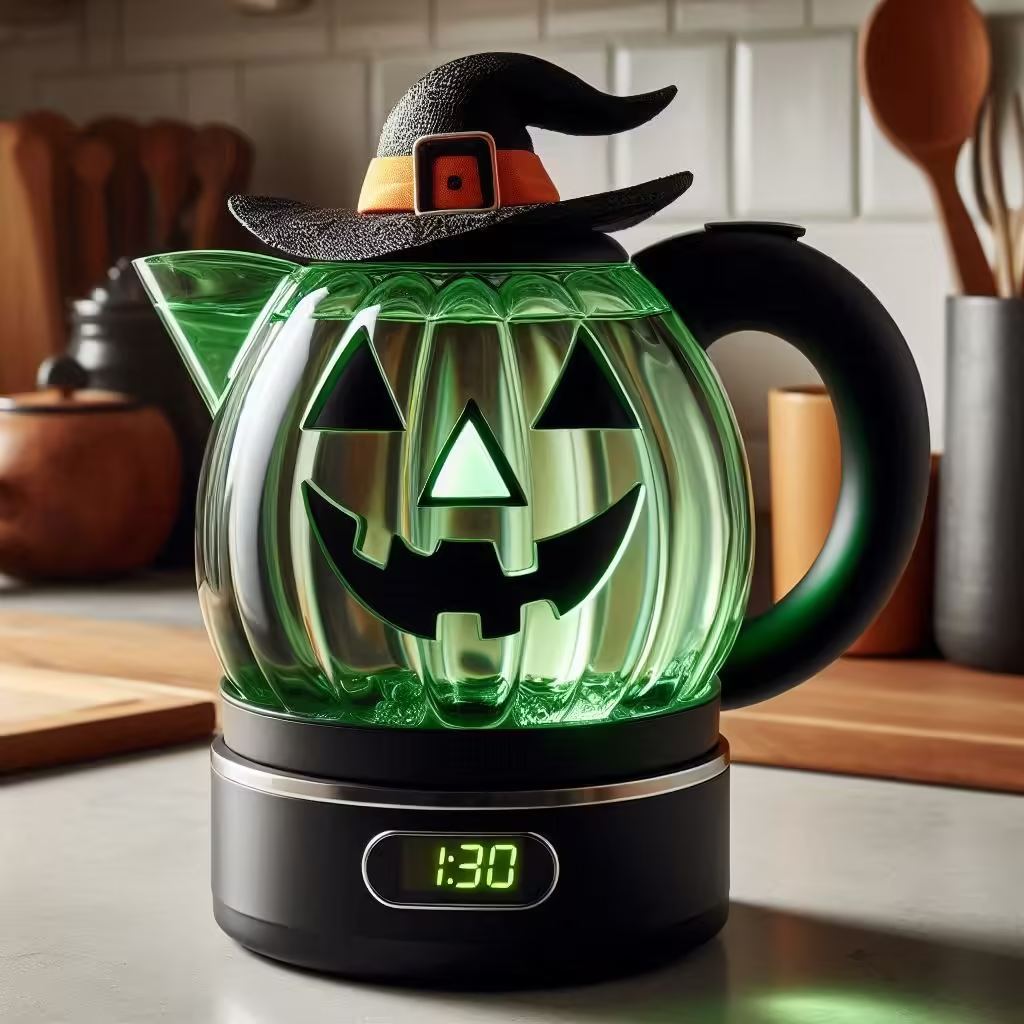
Additionally, they may possess unique markings or inscriptions that hint at their storied past. Such details fuel the narrative of supernatural connections, suggesting that the Spooky Kettles may have once belonged to a figure shrouded in mystery, amplifying its haunted aura.
Recurrent Patterns in Spooky Kettle Stories
Upon examining various tales surrounding spooky kettles, certain recurring patterns emerge. Many stories involve themes of loss, betrayal, or unfinished business, indicating that the object is somehow tethered to the past.
For instance, a kettle linked to a tragic love story may lead to reports of ghostly apparitions associated with the individuals involved. Similarly, kettles tied to witchcraft narratives often bring forth associations with healing or malevolence, depending on the context of the tale. These patterns highlight the ways stories evolve and adapt over time, merging the kettle itself with broader themes of human experience.
Popular Myths and Legends Surrounding Kettles
The mythology surrounding spooky kettles serves to enrich the cultural landscape, providing a treasure trove of tales that captivate our imaginations. Delving into these myths reveals the intersections of folklore, fear, and fascination.
Tales of Witches and Their Kettles
Witchcraft has long been a source of inspiration for tales involving Spooky Kettles. Many stories depict witches using large cauldrons or kettles to brew potions, symbolizing the blurred lines between healing and harm. These narratives often revolve around themes of societal apprehension towards women who defy traditional roles, thus framing the kettle as both a tool of power and a potential harbinger of doom.
In these legends, the Spooky Kettles acts as a metaphor for transformation and the unknown. It symbolizes the mysteries of nature and the potency of intention, serving as a reminder of humanity’s complex relationship with the natural world.
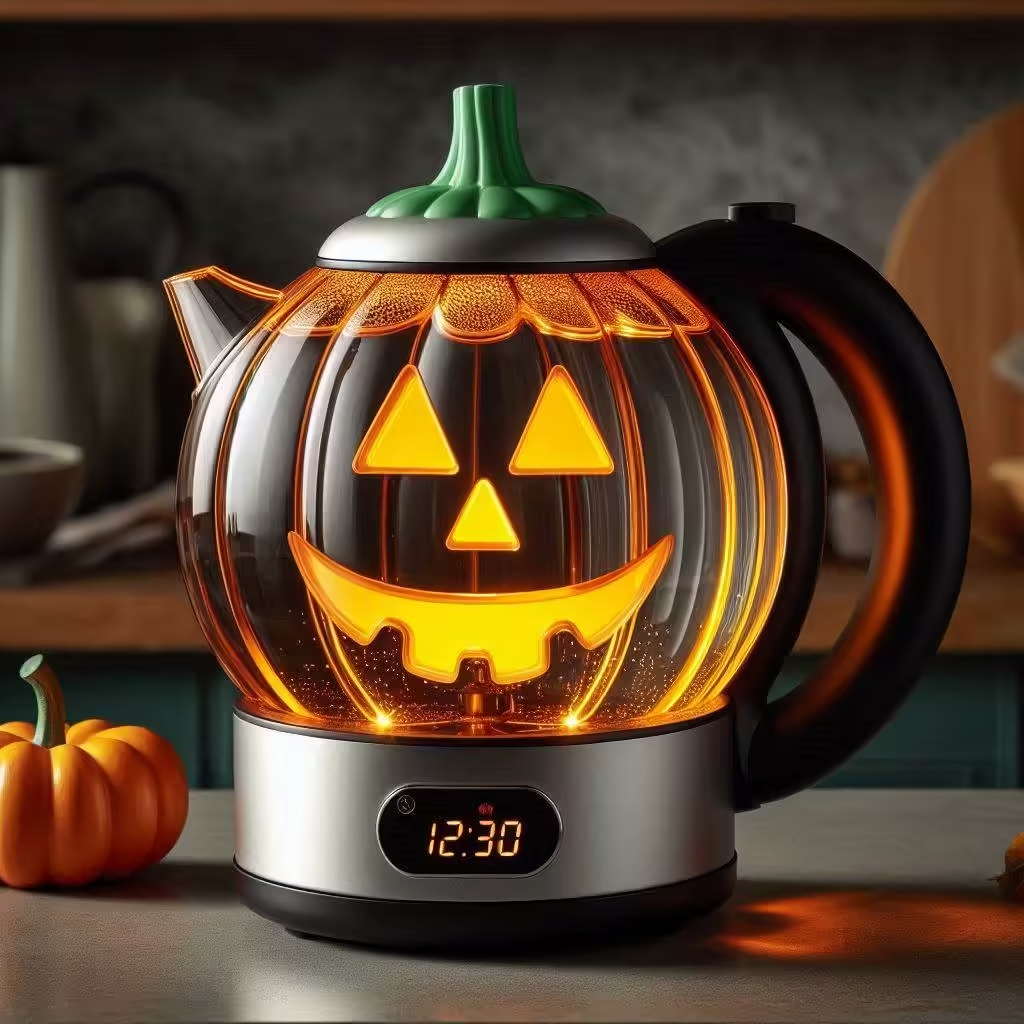
Ghostly Apparitions and Teapot Encounters
Encounters with ghostly apparitions linked to Spooky Kettles often manifest as fleeting glimpses or unexplained sounds, leaving witnesses with lingering questions. Many recount stories of seeing spectral figures hovering around their antique kettles, accompanied by sudden drops in temperature or flickering lights.
These encounters frequently evoke a mix of fear and wonder, compelling people to grapple with their beliefs about the afterlife Spooky Kettles. Such tales foster community connection, as shared experiences deepen bonds between storytellers and listeners, creating an ongoing dialogue about the nature of existence and what lies beyond.
Collecting Spooky Kettles
The world of collecting spooky kettles is a niche yet vibrant community, drawing enthusiasts eager to own a piece of haunted history. Understanding this realm can enhance one’s appreciation for these unique artifacts and the stories they tell.
How to Identify a Haunted Kettle
Identifying a haunted kettle often involves more than simply observing its age or condition. Potential collectors should pay attention to the Spooky Kettles lineage—stories passed down through generations can significantly influence its perceived haunted status.
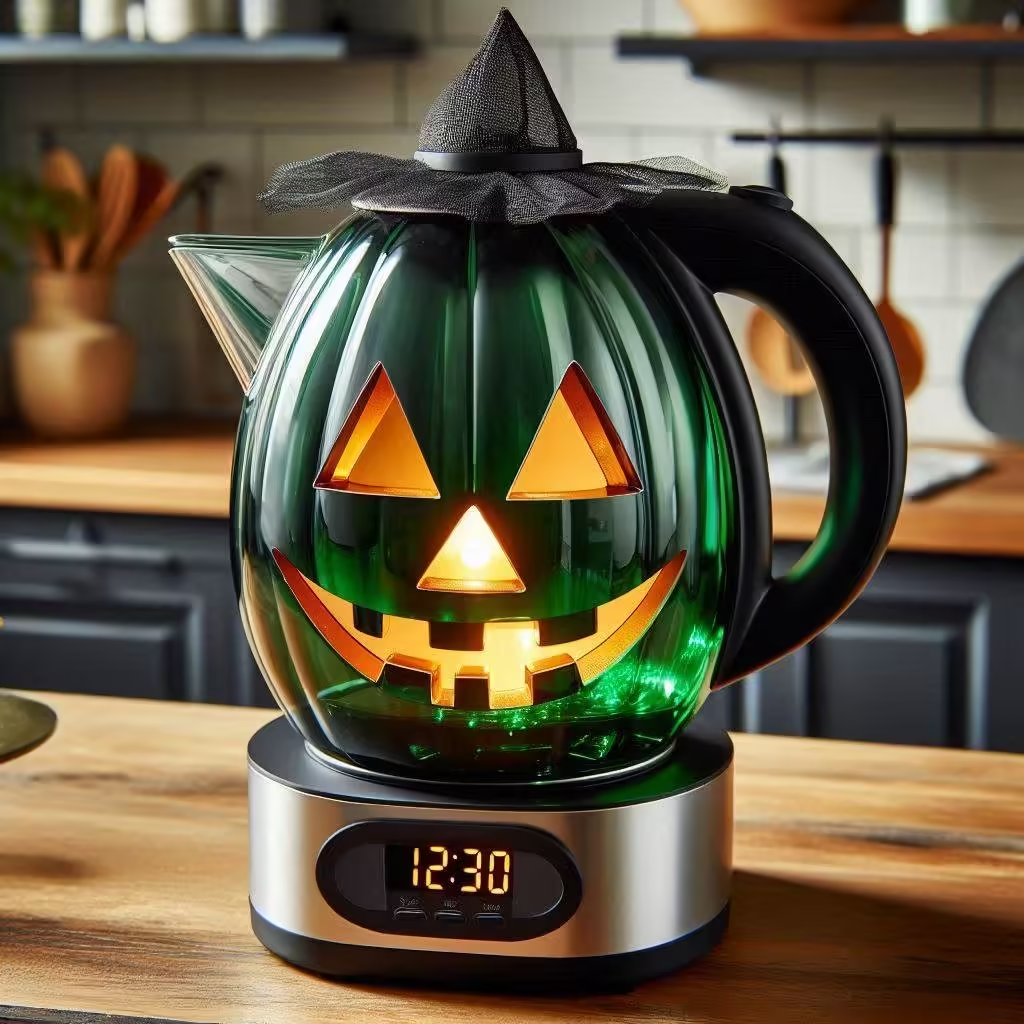
Investigating provenance, including previous owners and their connections to the supernatural, can add layers of intrigue. Additionally, distinctive features, such as unusual patterns or signs of wear, can signal a Spooky Kettles potential for otherworldly traits, igniting interest in its backstory.
Tips for Aspiring Collectors
For those looking to collect spooky kettles, joining collector communities or attending antique fairs can provide valuable insights and opportunities. Networking with fellow enthusiasts can yield stories and knowledge that enrich the collecting experience.
It’s also essential to approach the process with respect, acknowledging the history and narratives entwined within each kettle. Caring for these objects, preserving their stories, and sharing them with others fosters a sense of stewardship that honors both the kettle itself and its haunted legacy.
The Art of Crafting Spooky Kettles
Artisan potters play a crucial role in shaping the narrative of spooky kettles. Through their craft, they breathe life into the stories that accompany these objects, blending artistry with folklore.
Techniques Used by Artisan Potters
Crafting a kettle with a supernatural theme requires skill and creativity. Potters often employ various techniques, such as slip-casting, hand-building, and glazing, to create distinctive shapes and textures.
Incorporating thematic elements, such as carvings resembling witch symbols or ghostly figures, adds depth to the kettle’s design. By infusing these artistic choices with intention, artisans produce pieces that resonate with those who appreciate the blend of craftsmanship and mystique inherent in spooky kettles.
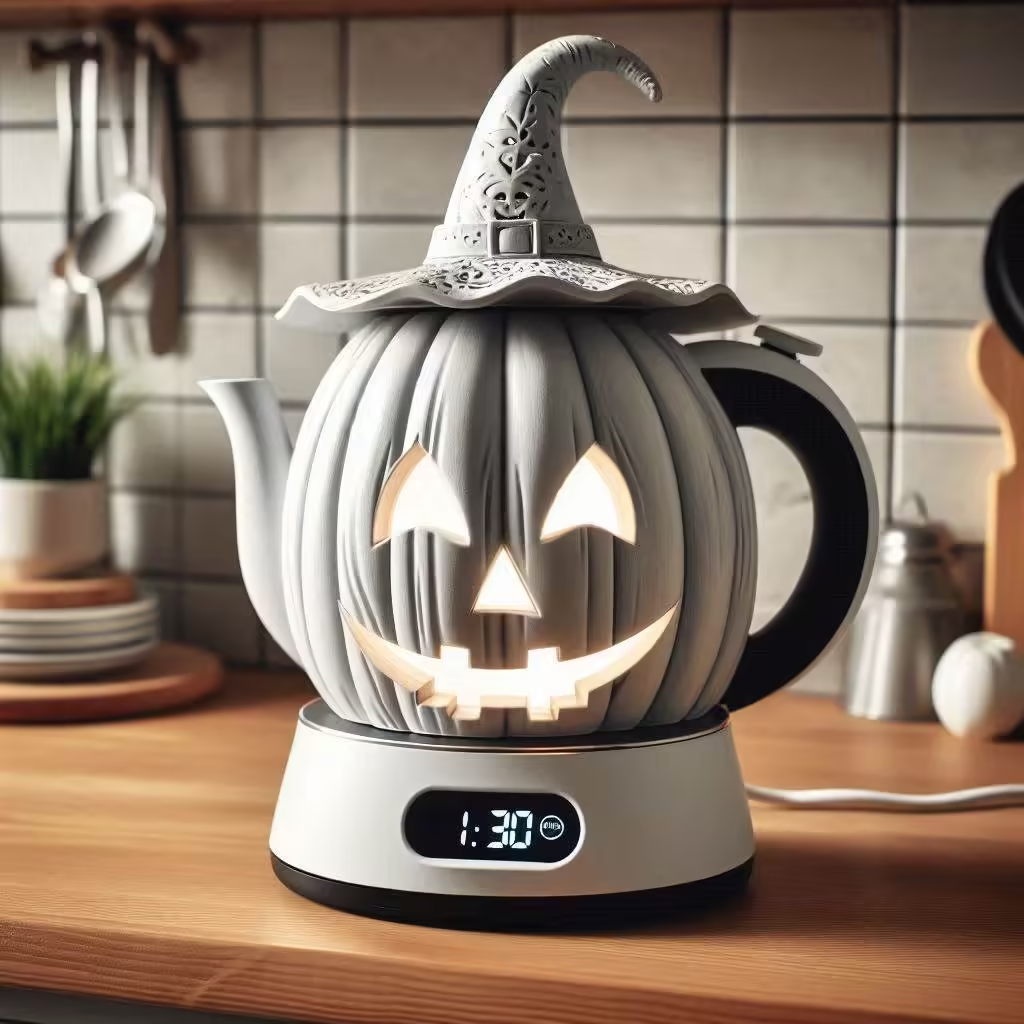
Integrating Supernatural Themes into Design
The integration of supernatural themes into Spooky Kettles design reflects a broader cultural fascination with the uncanny. Artisans may draw inspiration from local folklore or historical narratives, imbuing their creations with symbolism reflective of specific regions.
Additionally, engaging with customer feedback and stories can lead to unique collaborative endeavors, resulting in Spooky Kettles that embody personal haunts or collective legends. This symbiotic relationship between artisans and collectors enhances the kettle’s journey, elevating it from a simple object to an enduring representation of human experience.
Cultural Representations of Kettles in Media
The allure of spooky kettles extends into popular culture, where they find representation in film, television, and literature. Analyzing these portrayals offers insights into society’s ongoing fascination with haunted objects.
Film and Television Depictions
Spooky Kettles often make appearances in horror films and television series, serving as symbols of domesticity turned sinister. Films portraying haunted houses frequently feature scenes in which kettles boil unexpectedly, signaling the presence of spirits or foreshadowing impending doom.
These depictions tap into our fears of the familiar—and how it can become a site of terror. The juxtaposition of warm, inviting imagery with unsettling events creates a powerful narrative device that resonates with audiences, further entrenching the kettle’s role within the horror genre.
Literature Featuring Haunted Kettles
In literature, spooky kettles frequently emerge as key plot devices, guiding characters through their journeys into the supernatural. Authors often utilize kettles to evoke atmospheres of mystery or to symbolize transitions between the known and unknown realms.
Through descriptive prose, writers can evoke vivid imagery surrounding these Spooky Kettles, allowing readers to immerse themselves in the haunting tales. Whether they serve as focal points in ghost stories or reflections of character development, the representation of haunted kettles in literature continues to inspire and captivate audiences.
The Role of Spooky Kettles in Halloween Traditions
As Halloween approaches, the incorporation of spooky kettles into festive traditions becomes increasingly prominent. These kettles serve as symbols of the season, evoking themes of magic and the supernatural.
Decorating with Haunted Kettles
During Halloween, many households embrace the spirit of the season by incorporating spooky kettles into their decorations. Whether filled with faux spiders or positioned on mantelpieces adorned with cobwebs, these kettles add an element of intrigue that heightens the holiday atmosphere.
Creating a narrative around the kettle—perhaps associating it with a witch or ghostly figure—can further enhance its decorative impact. This storytelling aspect transforms ordinary home decor into captivating displays, inviting visitors to engage with the enchanting tales of the Spooky Kettles past.
Themed Parties and Events
Themed parties during Halloween often feature spooky kettles as central decorations, positioning them as conversation starters that spark curiosity and enchantment. Hostesses may incorporate kettle-themed cocktails or snacks, blending culinary delights with the mystique surrounding these haunted objects.
Games or storytelling sessions centered on the origins of specific kettles can elevate the party experience, allowing guests to immerse themselves in the lore while enjoying the festivities. This integration of spooky kettles into holiday traditions reinforces their status as cherished cultural symbols.
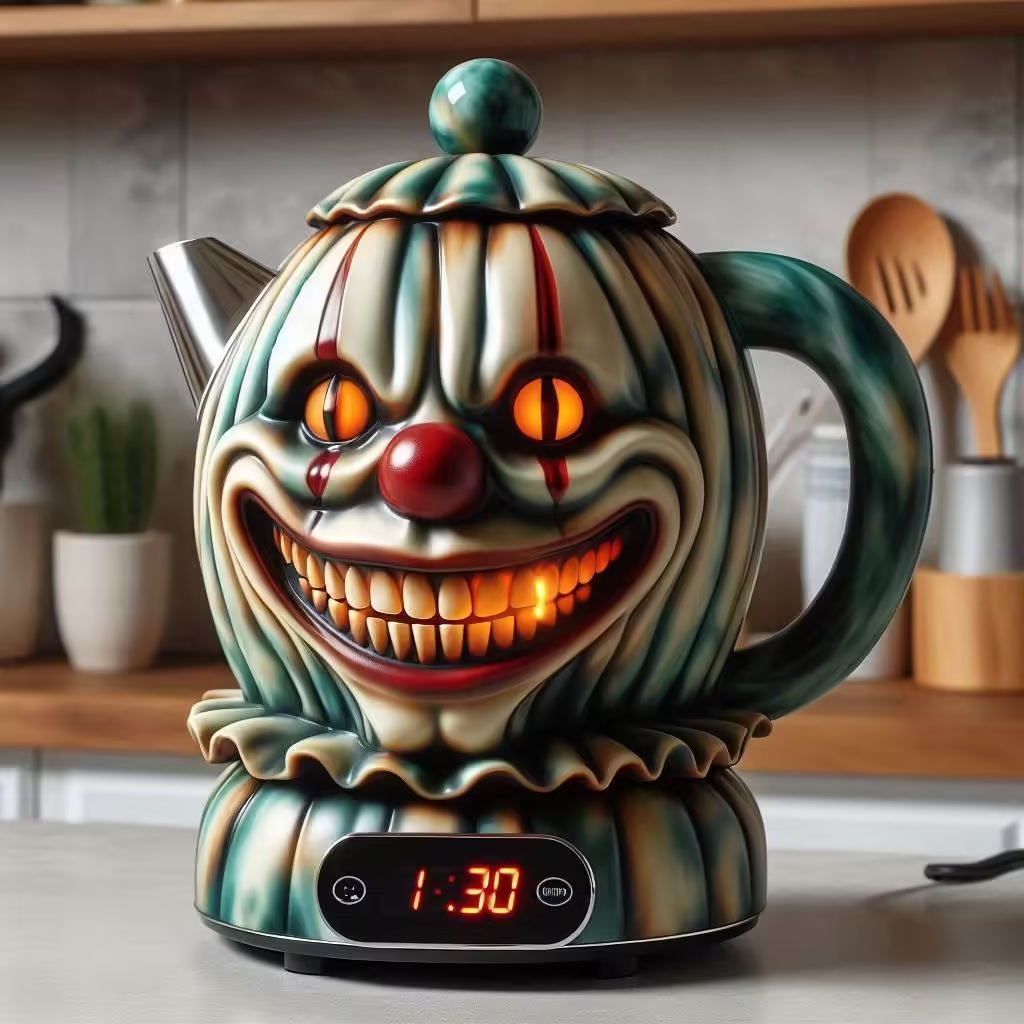
Engaging with Spooky Kettles: Experiences and Anecdotes
Engagement with spooky kettles goes beyond mere observation; it encompasses personal stories and shared experiences that bind communities together. These anecdotes shed light on the significance of haunted kettles in our lives.
Personal Stories from Enthusiasts
Stories from enthusiasts often provide profound insights into the emotional connections people forge with spooky kettles. One collector recounted finding an old kettle at a flea market, only to discover it had belonged to her great-grandmother—a woman known for her herbal remedies and alleged clairvoyance. This revelation deepened her appreciation for the kettle, transforming it from a simple object into a cherished heirloom imbued with familial history.
Such personal anecdotes underscore the transformative nature of spooky kettles, emphasizing how they connect individuals to their pasts and foster a sense of belonging within the larger narrative of ghostly folklore.
Interactive Exhibits and Events
Museums and cultural organizations often host interactive exhibits featuring spooky kettles, allowing visitors to engage with the objects while learning about their histories. These events may include storytelling nights, workshops on crafting haunted kettles, or paranormal investigations focusing on exhibited pieces.
Participation in such activities not only cultivates a deeper understanding of the cultural significance of haunted kettles but also fosters community engagement, bringing together individuals united by a shared interest in the mystical and the extraordinary.
The Future of Spooky Kettles
As society evolves, so too does the perception of spooky kettles. Exploring future trends in collecting and appreciating these objects reveals ongoing connections to our collective history and beliefs.
Trends in Collecting and Appreciation
The rise of social media has breathed new life into the world of collecting spooky kettles, enabling enthusiasts to share their finds and stories with a global audience. Platforms dedicated to vintage and haunted items allow collectors to engage in discussions, showcasing their prized possessions while discovering new ones.
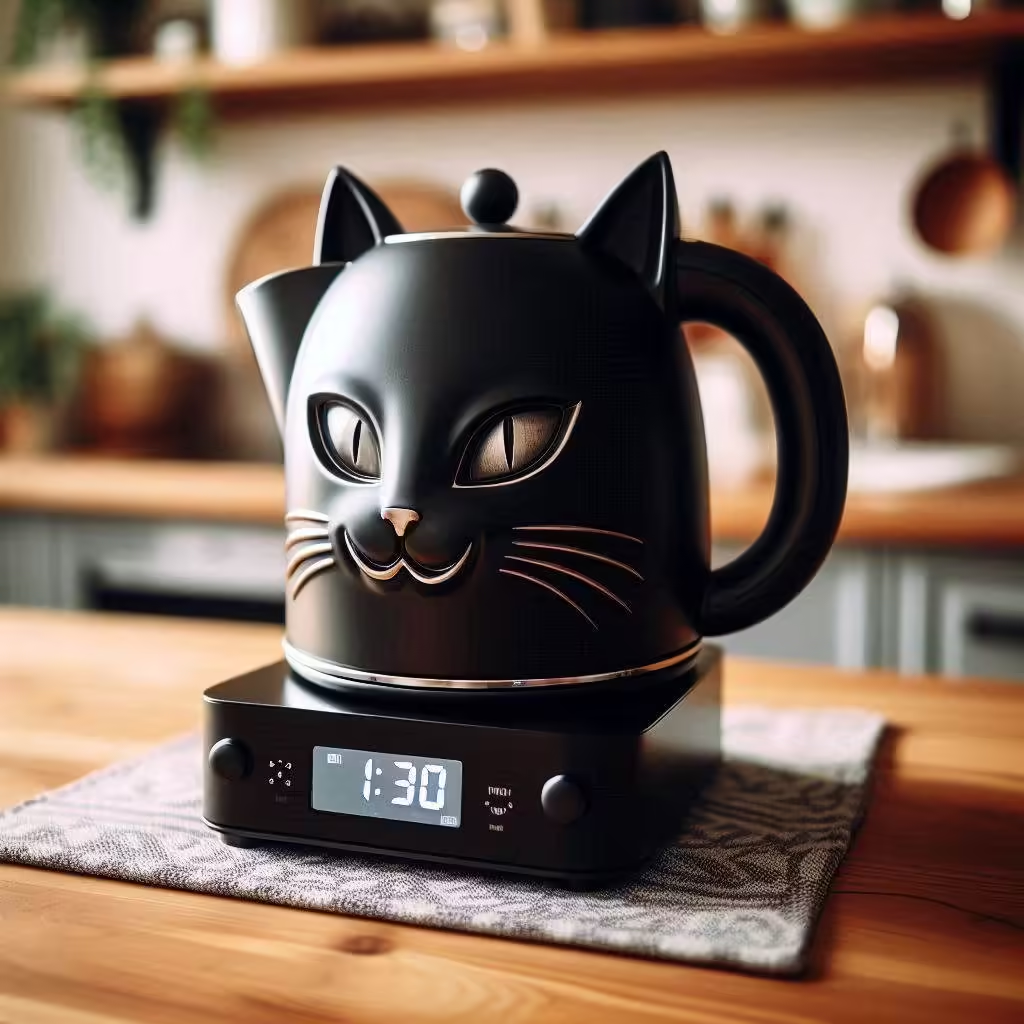
Moreover, as interest in sustainable living grows, there may be a resurgence in handcrafted kettles produced by artisan potters, emphasizing the importance of history and storytelling in their creation. This trend highlights a shift toward valuing objects with meaning, as collectors seek to acquire pieces that resonate with personal or cultural narratives.
Evolving Perceptions of the Supernatural
As perceptions of the supernatural continue to evolve, so does our understanding of spooky kettles. With an increasing emphasis on mental health and well-being, the fascination with haunted objects may shift toward exploring their emotional significance, promoting healing and connection rather than fear.
Moreover, the intersection of technology and spirituality may give rise to innovative interpretations of haunted kettles, incorporating elements of augmented reality or digital storytelling. This evolution challenges traditional narratives surrounding the supernatural, fostering new avenues of exploration that redefine our relationship with the mysterious.
Conclusion
In the world of antiques, spooky kettles stand out as captivating artifacts woven into the fabric of folklore and cultural identity. Their stories transcend the boundaries of time and space, inviting us to reflect on our beliefs about the supernatural and the narratives that shape our understanding of the world. As we navigate the realms of the known and unknown, these kettles serve as reminders of the enduring power of storytelling—a force that connects us to our past and ignites our imaginations for the future.


